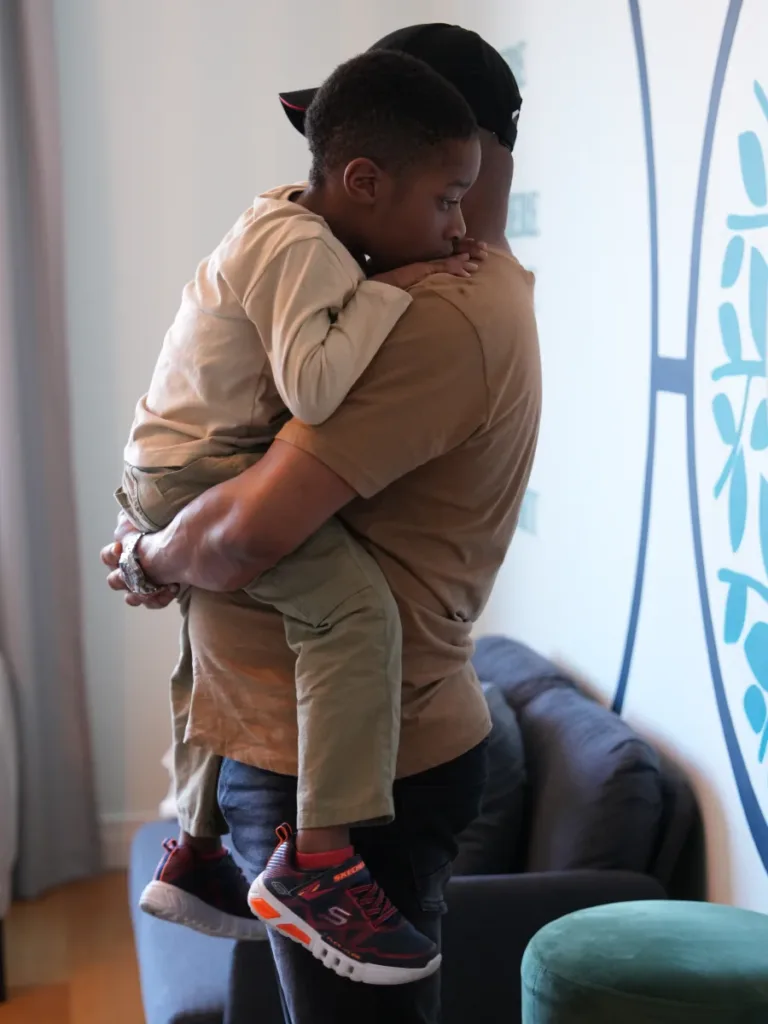Introduction
At Linden Clinics, we have had the privilege of walking alongside families as they navigate the complexities of parenting a child with autism. This shared journey has provided us with profound insights into the resilience, hope, and perseverance that characterize this path. Supported by existing literature, we share key lessons that offer comfort and guidance to families on similar journeys.
Understanding the Challenges of Parenting a Child with Autism
Resilience in the Face of Challenges
Parenting a child with autism often involves overcoming a range of challenges, from therapeutic interventions to managing daily routines. We’ve worked with many families, and one story that really touched us was from a couple who hadn’t been able to watch a movie together for years because their child’s needs were so demanding. After their child’s stem cell therapy, they shared that they were finally able to enjoy a movie together again. It was a powerful reminder of how even small victories can bring immense relief and joy to a family.
Resilience is a crucial trait for parents, enabling them to persist despite these difficulties. According to Hastings et al. (2005), parents of children with autism often experience higher stress levels but also exhibit significant resilience, which is vital for creating a nurturing environment where children can thrive.
The Power of Hope
Hope acts as a guiding light for families facing the uncertainties of raising a child with autism. In the face of challenges, hope provides the strength to move forward. Dunn et al. (2001) emphasize that hope plays a critical role in coping with the demands of raising a child with autism. It fosters resilience and sustains belief in brighter days ahead, motivating families to persist in seeking solutions and support.
The Impact of Persistent Efforts
Supporting a child with autism requires extraordinary perseverance from parents. McIntyre (2008) highlights that consistent parental involvement in therapy and educational strategies can lead to significant improvements in the child’s abilities and well-being. The dedication parents show, even in the face of setbacks, is crucial for fostering their child’s development and creating a supportive environment.
We’ve seen firsthand how couples, instead of being driven apart by the challenges, have come together with even greater strength. We’ve witnessed couples praising each other’s efforts with deep admiration, inspiring everyone around them. Having a child with ASD didn’t make them distant; it brought them closer, strengthening their bond and deepening their love and respect for one another. This closeness has been a powerful testament to the resilience and unity that can grow from shared challenges.
The Promise of Building a Support Network
Social and Emotional Support
Building a support network is invaluable for parents of children with autism. Mandell and Salzer (2007) suggest that connecting with others who share similar experiences offers not only practical advice but also emotional support, reducing feelings of isolation. This shared journey makes the challenges of parenting more manageable and the future more hopeful.
Celebrating Every Achievement
Recognizing and celebrating each achievement, no matter how small, is essential for maintaining a positive environment. According to Pozo et al. (2014), celebrating successes contributes to a sense of accomplishment and encourages continued growth. This recognition reinforces the efforts of both the child and their family, turning challenges into milestones of progress.
Whenever a family reached out to update us on their child’s progress, we felt immense joy in celebrating those small, yet significant, changes together. You can’t imagine the happiness we felt when families shared that their child tasted a vegetable for the first time or was finally able to engage in speech therapy and focus. These moments, seemingly small, are monumental victories that remind us all of the power of persistence and hope in this journey.
Complementary Strategies for Supporting Children with Autism
Psychological and Educational Support
We guide families in combining therapeutic interventions with psychological support and educational programs to address the emotional and social needs of their child. These programs, which include social skills training and community integration, are vital for enhancing the child’s ability to connect with others and adapt to different environments.
Nutritional Support
Proper nutrition plays a crucial role in overall health and can support the effectiveness of other therapies. Ensuring a balanced diet helps in managing symptoms and promoting the child’s well-being.

Conclusion
Parenting a child with autism is a journey defined by resilience, hope, and persistent effort. At Linden Clinics, we have learned that, while challenging, this journey is also filled with opportunities for growth and celebration. Supported by a multidisciplinary team and ongoing research, families can find the strength to create a nurturing environment where their child can thrive.
References
- Hastings, R. P., Kovshoff, H., Brown, T., Ward, N. J., Espinosa, F. D., & Remington, B. (2005). Coping strategies in mothers and fathers of preschool and school-age children with autism. Autism, 9(4), 377-391.
- Dunn, M. E., Burbine, T., Bowers, C. A., & Tantleff-Dunn, S. (2001). Moderators of stress in parents of children with autism. Community Mental Health Journal, 37(1), 39-52.
- McIntyre, L. L. (2008). Parent training for young children with developmental disabilities: Randomized controlled trial. American Journal on Intellectual and Developmental Disabilities, 113(5), 356-368.
- Mandell, D. S., & Salzer, M. S. (2007). Who joins support groups among parents of children with autism? Autism, 11(2), 111-122.
- Pozo, P., Sarriá, E., & Brioso, A. (2014). Family quality of life and coping strategies in parents of individuals with autism spectrum disorders: A comparison between Spain and Italy. Journal of Intellectual Disability Research, 58(6), 485-495.

